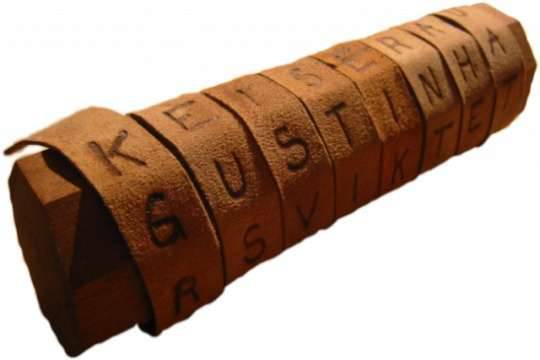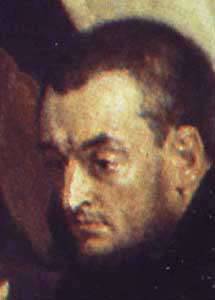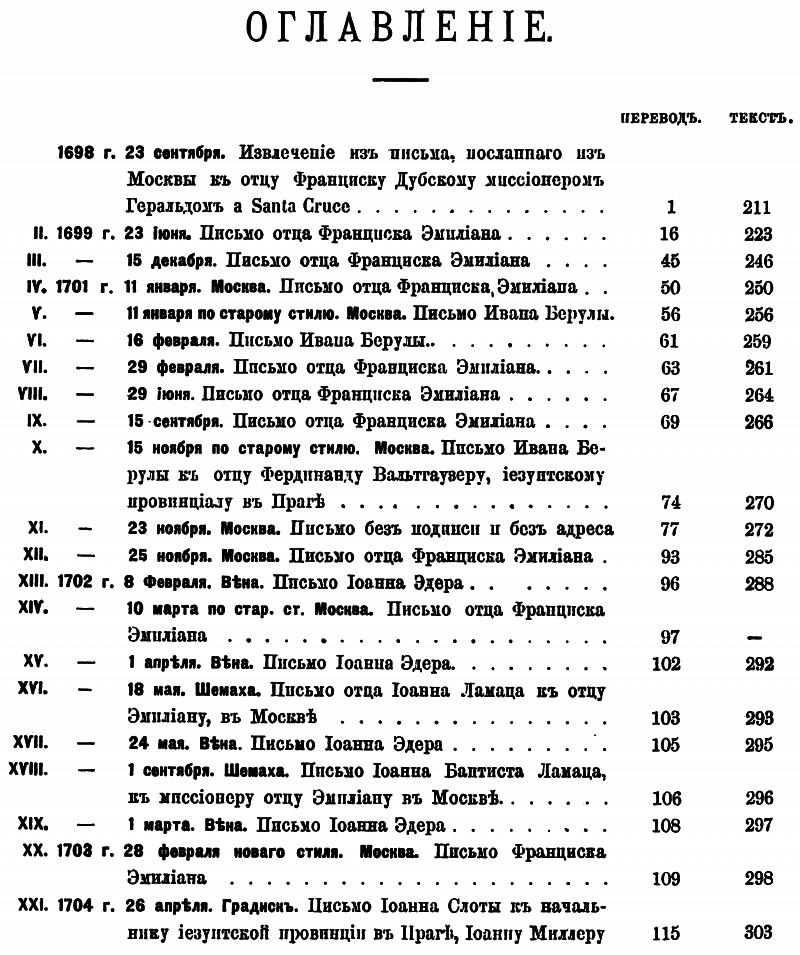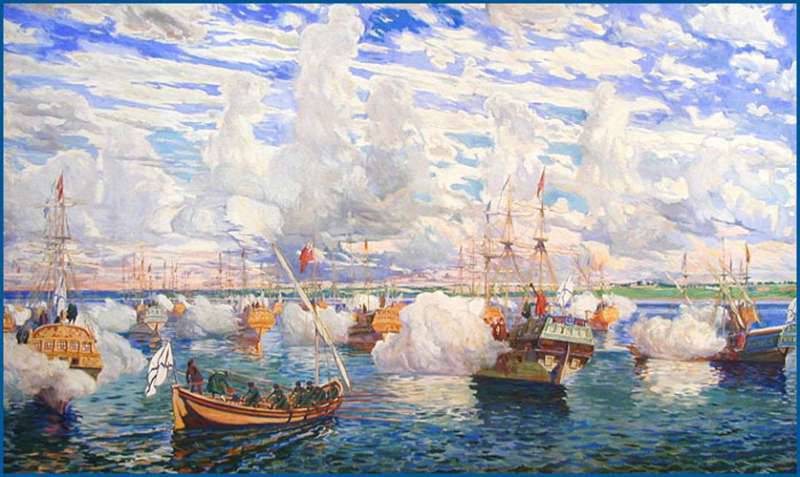Spies Part of 1

23 September 1698 of the year, barely arriving in Moscow, the resident hurries to establish encrypted (with the help of numbers) correspondence with many foreign centers. In the event that the Russians knew about the method of correspondence that was so suspicious and unusual for a religious mission, it was recommended to speak in explanations with the authorities, “that you are answering a mathematical question or reporting some kind of art”.
This became known after in 1883, the copies of sixty very interesting documents of the XVII and XVIII centuries from one Prague archive were delivered to Russia. They got into that archive along with other papers of the Bohemian province of the Jesuit Order, whose center was in Prague. In 1904, these documents were published in Petersburg in the form of a book, which was called “Letters and Reports of the Jesuits about Russia in the Late XVII and Early XVIII Centuries”. In some respects, this collection of documents is simply priceless: in them, the Jesuits personally described many of their obvious and secret matters, told them what was carefully hidden from prying eyes.
In one letter we find information about the shortest possible route through Russia to China, in another the Jesuit reports the details of the battle of the Russians with the Swedes near Narva: they inform about the forces of the Russian artillery and the armies operating in Kurland and Lithuania against the Swedes: further the Jesuit writes to the authorities, that it is a new, updated map of the upper Volga region; diplomatic information is also given in the letters, and every year more and more.
From these documents it is clear that the Jesuits living in Moscow under the guise of "saving souls" Catholics traveled around the country, and precisely in such places that were of particular interest from a military point of view. So, back in 1698, one missionary went to Voronezh, where Peter I built a navy for war with the Turks.
In 1701, the Jesuits successfully bothered to equip special Catholic missions to Taganrog and Azov, where the most important events of the war were unfolding.
That same year, before leaving for Azov, the Jesuit Francis Emilian wrote about his desire to move from there to Astrakhan, “where most of the merchants from the great Tataria gather, as well as from Mongolia, Gazarrati and remote areas of India. I hope that this journey would not be without good, ”added the Jesuit meaningfully. (“Letters and reports of the Jesuits about Russia at the end of the 17th and beginning of the 18th centuries”, pp. 95-96. Apparently, this is the Gujarat region of northwestern India, one of the most important shopping centers at that time on the way from Africa and Asia Minor to South Asia.)
In the 1709 year, according to the report, one Jesuit monk traveled to Arkhangelsk - to a city and port that was of great strategic importance and interested all foreign intelligence officers (not too much here to remind you that both Astrakhan and Arkhangelsk are on the list of four Russian cities Jesuit Reitenfels to help future organizers of papal espionage).
Thus, in Moscow, there was one of the important centers of the Vatican intelligence service; he stretched his tentacles to neighboring countries. Thus, the Viennese Jesuit Eder in 1702 wrote about the intended appointment of new missionaries to Moscow to send, as it were, to Azov, and in fact to China (Letters ..., p. 97). In 1699, Francis Emilian informed the authorities that the Jesuits living in Moscow maintained contacts with Armenian and Persian merchants through whom they corresponded with the Jesuit resident living in Shamakhi and even more distant Tibet was obtained (“Letters ...” p. 34-36).
Russian mistrust, contempt and hatred of the Jesuits were so great that the Catholic mission in Moscow could exist only because of deception: it was carefully hidden that these missionaries belonged to the Jesuit order, and it was believed that they were ruled by the German emperor, and not the pope the Jesuits themselves, "if the Muscovites ... found out the opposite, ... missionaries ... would not have suffered any longer, because whoever Rome sends will never be accepted by Muscovy." Letters ..., pp. 191, p. 200).
The German emperor pursued his goals, which in many respects coincided with the papal ones. Therefore, he willingly spent a lot of money on the maintenance of the mission, in particular, the construction of her house and church in Moscow, as well as the Jesuits' salary (he paid them 800 rubles annually - at that time a huge amount) and the support of the Jesuit school.
For the sake of completeness, it is also necessary to remind that not only those Jesuits who settled at the church under the guise of simple priests worked in Moscow. There were more secret Jesuits; Moscow correspondents accidentally chatted about them. Of the foreigners mentioned here, this is undoubtedly Gordon, Menezius, Gvasconi (in the name of the latter, the house built for the money of the German emperor in the German Quarter was recorded - the secret residence of the Moscow Jesuits) and others. So, from one letter we learn that the secret Jesuit served as a chemist in a Moscow Catholic pharmacy. In addition, the permanent agents of the Society of Jesus received help from the Jesuit roadways, who stayed in Moscow for a long time on their way to the countries of the East.
Slapping in front of the order to send a teacher and two other missionaries to Moscow, the Jesuit residents in Moscow considered it necessary that they come not in monastic but in secular dress (“The diary of Berchholz’s chamber-cadet in Russia in the reign of Peter the Great from 1721) on 1725 year ", part 2, ed. 2, M., I860, p. 158." Letters ... ", p. 22 and 88).
When some ill-wishers from other orders went to Poland from a Jesuit Ilya Broggio to Poland that he did not wear an orderly robe in Krakow, Broggio justified himself like this: “The reason that I wore such clothes in Poland filled with Muscovites everywhere was however, according to which the clothes of our fathers were changed in Muscovy ”(“ Letters ... ”, pp. 165 — 166).
Broggio added that three months earlier, when there were no Russians in Krakow, he wore a Jesuit soutane.
So Yuri Krizhanich in 1646 wrote from Smolensk to Rome, that he was most concerned about preserving secrecy over the true goals of his visit to Russia. Krizhanich wanted such an impenetrable secret that, out of the fear of "betrayal" (his expression), it was even possible to deny to the Catholics that he was a missionary.
Of particular importance, as always and everywhere, the Jesuits in Moscow attached to their school, through which they were able to establish ties with the Russian nobility, - that was its main task. But the connections were fragile; besides, they extremely embittered the Orthodox clergy and in the end became one of the reasons for the new expulsion of the Jesuits from Russia.
Peter I saw the Jesuit wiles perfectly and considered the Catholic mission, apparently, primarily as a foreign intelligence agency. He did not want to eliminate it for a long time - perhaps because, watching her, it was easier to find out than in the Russian state, military and economic life the neighboring governments are especially interested; and besides, by allowing the activities of the Jesuits, he satisfied one of the insistent requests of the German emperor, who always sought various privileges for the Catholic Church in Russia.
Thus, the question of the Jesuits was for the Russian government a matter of international politics. Here we must look for the cause of the uneven attitude towards the Jesuits: it worsened as these scouts of the Vatican brazenly and caused more and more harm to our state. Over time, the Jesuits unleashed so much that in general they no longer hide their participation in international affairs.
This is very clearly and convincingly reflected in their correspondence, where more and more messages like the following began to appear (Jesuit Broggio, who came from Moscow to Vienna, writes to Prague the provincial of the Order):
“On December 1 I had a gracious and friendly audience with our most august emperor (Joseph I). August wants me to go to Poland as soon as possible, and if possible, to the king himself, and deliver a very important letter to the king in a secret manner and, on behalf of His Majesty, he said something and certified about something, etc. not without a hunt, I take this opportunity to return to the Russians, since I consider it absolutely necessary to finally find out how permanent the Muscovites are in the present circumstances, and whether any disorder has occurred in religious harmony because of the world that we tried Troit among themselves, with the exception of the king, the Swedish king and Augustus (the Polish king Augustus II) and whether this suspicious nation has changed even slightly towards the emperor. ”
 It must be said that after the visit of Antonio Possevino (he wrote the book "Muscovy"), the Jesuits did not at all begin to understand Russian affairs better. Russia was still a barbarous country for them, and Russians were savages. They considered the people of Russia only as “misguided”, which should be deprived of state independence and converted to Catholicism, although it is not easy: “And with such an abundance of spiritual fish you cannot reach out to take it!” - one missionary exclaimed in the letter.
It must be said that after the visit of Antonio Possevino (he wrote the book "Muscovy"), the Jesuits did not at all begin to understand Russian affairs better. Russia was still a barbarous country for them, and Russians were savages. They considered the people of Russia only as “misguided”, which should be deprived of state independence and converted to Catholicism, although it is not easy: “And with such an abundance of spiritual fish you cannot reach out to take it!” - one missionary exclaimed in the letter.They did not have the ability to satisfy their large appetites, but they did not want to make peace with less than the submission of the authority of the Roman pope and the German emperor to Russia; In an effort to accelerate the course of events, the Jesuits lost their vaunted restraint and often expressed the most contradictory opinions in assessing the prospects for their mission. In impatience, they sometimes took what they wanted for the already existing and sometimes fell into such strange optimism that they began to assure themselves and the pope that Peter was dreaming about the union of the Catholic and Orthodox churches, advised to send the papal nuncio to Moscow as soon as possible, "for the time being ... done preparatory work for fishing ”and in order to establish new Catholic missions, to erect“ many churches ”and so on.
In the form of a special curiosity, one must also mention that one Jesuit, some Mikhail Iakonovich, even dreamed of no more and no less than how to become a Moscow patriarch, and complained bitterly that this did not happen. Such a phenomenal Jesuit self-deception would have seemed incredible if it had not been confirmed by the existence of a letter with this complaint (D. A. Tolstoy, “Roman Catholicism in Russia”, Vol. I, St. Petersburg, 1876, p. 114).
Other Jesuits looked at things much more gloomy, and one of them spoke out even completely hopelessly - in the sense that “it is useless and dangerous to send missionaries to the Moscow state in any way” (“Letters ...”, p. 202) .
Closer to the truth were these pessimists: at the moment of a sharp deterioration in relations with the Austrian government (it supported the plot of Tsarevich Alexei) Peter the First 18 on April 1719 announced the expulsion of all the Jesuits from Russia.
This is enough to outline the activities of the Jesuit Order in Russia at that time and to prove that the strict measures taken by Peter I were reasonable.
Then the order this fifty-three years did not appear officially in Russia, while under Catherine II, the vast territories of Belarus and Ukraine with a large Catholic and Uniate population were reunited with the Russian state.
Of course, and until then, being expelled, the Jesuits “honored” our country with their attention.
Finding themselves outside 1719, they continued in Poland, Austria and other countries to weave their web of espionage and build all sorts of other machinations. Even more insidious than before, they were still taken in secular clothes as teachers in the homes of Russian nobility; under the guise of officers, merchants and engineers, they penetrated into the Russian army, trade and industry, remaining elusive partly because of their insinuation, partly thanks to secret patrons - some Russian aristocrats and important officials who favored Catholicism.
As an example of the secret Jesuit fuss around the Russian affairs of that time, we can mention one of the attempts to introduce the union of the Orthodox and Catholic churches in Russia - of course, under the papal supremacy.
To be continued ...


Information